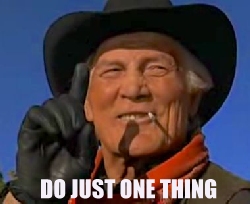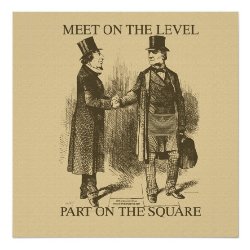BRYCE ON NONPROFITS
- What can be done to rebuild declining nonprofit institutions?
To use this segment in a Radio broadcast or Podcast, send TIM a request.

When I travel around town these days, I often run into old friends and neighbors who know my background regarding nonprofit organizations (I served on +50 board of directors over the years), and they like to unload their frustrations on me. For example:
* The president of a homeowner association complained he had to serve a second term simply because they couldn't find anyone interested in serving on the board and perform some relatively simple tasks. Consequently, they were forced to hire a management company to perform these tasks and the annual dues skyrocketed. Operating an HOA is certainly not rocket science, but if nobody is willing to perform these simple tasks, then they have to be delegated to an outside contractor.
* A local club for a major political party is also having problems attracting people to their Board of Directors. Further, not long ago, participation in parades was well attended and gave the club visibility in the community. This year, they could only attract four people to walk in the Xmas parade, an embarrassingly low number.
* Masonic lodges continue to shrink in size in my area. Instead of addressing the root cause of their problems, membership continues to diminish, and Lodge funds are being drained to maintain aging building structures. It's just a matter of time before they disappear just like the Odd Fellows did in our area.
* Information Technology related associations for adults have disappeared. Back in the day, professional trade groups enjoyed a major presence in cities, such as the Association for Systems Management (ASM), the Association of Information Technology Professionals (AITP; formerly DPMA), and the Association for Computing Machinery (ACM). Today, these groups are non-existent in the Tampa Bay area (as well as my old stomping grounds in Cincinnati). ACM does maintain student related chapters, but nothing for adults in my area. Other trade groups are experiencing similar problems.
* Attendance at local churches are down. So much so, some have been running in the red for quite a while and are faced with tough decisions for cutting costs, including the firing of pastors. Further, due to lack of participation, the elders have to serve multiple terms.
* Volunteers for public schools are hard to come by these days, not only for general school activities, but for local Parent Teacher Associations (PTA), and School Advisory Councils (SAC).
* Little League programs have shrunk noticeably. In my area alone, children participating have dropped over 50% over the last few years.
It kind of sounds contagious, doesn't it? So many different nonprofit organizations with similar problems.
In many cases, nonprofits are run by well meaning people who have some time on their hands, yet haven't a clue as to how to run a business. Consequently, the execution of simple procedures are neglected, e.g.; the preparation of meeting agendas and budgets, issuing routine treasurer reports, auditing finances, or keeping accurate minutes and membership records. For a list of tasks, see my earlier article,
"Managing a Nonprofit Organization."
I guess I have become somewhat of a therapist on such problems as people continue to confide in me. I try to advise them accordingly, but the sad truth is the people running these organizations are frustrated and exhausted. They desperately want to hand the baton off to others, but there is nobody there.
Now and then in nonprofits, someone with a business background comes in, takes the bull by the horns, and does a good job with an assignment. The problem is, it is assumed the person will do it again next year, and possibly for eternity. With rare exception, this is not what people signed up for. To overcome this problem, ask the person to document the steps they used while they were in charge, perhaps through checklists, thereby documenting the procedure for future reference. The person thereby passes this knowledge on to the group overall, and someone else can perform the responsibility. Bottom-line, execution is fairly easy assuming planning is competently performed.
From my perspective, there are three fundamental problems facing nonprofits:
1. Apathy by both the officers and membership who genuinely do not believe a problem exists. The old maxim applies: "You cannot treat a patient if he doesn't know he is sick." Such apathy suggests incompetent leadership from the Board of Directors.
As an aside, I tend to believe our excessive use of personal technology shares part of the blame in terms of apathy as people are more imbued with their technology and are losing socialization skills, including volunteering their services.
2. Organizations are stuck in a rut of repetition. They have been doing it wrong for so long, they believe it is right. Instead of making the programs meaningful and interesting, there is little or no imagination to adapt and improve. Again, this suggests incompetence by the Board of Directors.
3. Failure to recruit and train people to succeed the current administration. People today are less inclined to volunteer as in the past. Now, is the time to personally ask for assistance, indoctrinate them in one aspect, and empower them to conquer problems. Start by asking people to serve on committees. To get the ball rolling, simply make a list of committees and tasks, and get everyone's name on it. To gain their commitment, have them sign their name.
As to this last point of recruiting support, during my talks to such groups I generally admonish all of the attendees to "Do just one thing." This is derived from Billy Crystal's movie, "City Slickers," whereby Curley (Jack Palance) tells Billy's character the meaning of life involves "Just One Thing" which we must all figure out for ourselves. In terms of nonprofit organizations, I think I have an answer:
If all members did "Just One Thing" for their club, it would be a better place. I am not suggesting we do anything extremely labor intensive; perhaps it is something as simple as being a greeter at the door, preparing name tags, attending a meeting or social function, helping to write letters, or just helping out in some simple way. If we all did "Just One Thing," the institution overall would be a better place.
Something that might help is the creation of a "Member of the Year" competition based on points for service, and award prizes or special recognition at the end of the year for their service. It sounds trivial, but people react to such competitions. Simply devise a list of activities with related points, and have people notify an officer of their activities.
Where is it written the club Officers must do all of the work? Sure, they have many responsibilities, but it is the job of the officers to formulate objectives and set the membership to work towards some goals. I am amazed by those members who come to such clubs and are not happy with this or that. For example, how often have you seen a member criticize the club, yet make no attempt to lift a finger to help out? We have developed into a generation of "takers" as opposed to "givers," and this has to stop. Before you criticize next time, figure out how YOU are going to help solve the problem. Do not be part of the problem, be part of the solution.
I guess the following quote sums it up:
"People can be divided into three groups: those who make things happen, those who watch things happen, and those who wonder what happened." - John W. Newbern
It is up to the membership, not just the Board of Directors, to each share in the responsibility of making our clubs successful. If we all did "JUST ONE THING," be it large or small, think how far ahead we will be.
Keep the Faith!
Note: All trademarks both marked and unmarked belong to their respective companies.
 Tim Bryce is a writer and the Managing Director of M&JB Investment Company (M&JB) of Palm Harbor, Florida and has over 40 years of experience in the management consulting field. He can be reached at timb1557@gmail.com
Tim Bryce is a writer and the Managing Director of M&JB Investment Company (M&JB) of Palm Harbor, Florida and has over 40 years of experience in the management consulting field. He can be reached at timb1557@gmail.com
Copyright © 2018 by Tim Bryce. All rights reserved.
 As 2018 comes to a close, I thought I would grade how our federal government did this past year, and ask if we truly got our money's worth:
As 2018 comes to a close, I thought I would grade how our federal government did this past year, and ask if we truly got our money's worth: Tim Bryce is a writer and the Managing Director of M&JB Investment Company (M&JB) of Palm Harbor, Florida and has over 40 years of experience in the management consulting field. He can be reached at timb1557@gmail.com
Tim Bryce is a writer and the Managing Director of M&JB Investment Company (M&JB) of Palm Harbor, Florida and has over 40 years of experience in the management consulting field. He can be reached at timb1557@gmail.com This is my last column for the year as I prepare to enjoy the holidays and rest up for 2019. As has become customary, I'm using this opportunity to review my top essays from the past year.
This is my last column for the year as I prepare to enjoy the holidays and rest up for 2019. As has become customary, I'm using this opportunity to review my top essays from the past year. As a follow-up to my recent column on
As a follow-up to my recent column on  When I travel around town these days, I often run into old friends and neighbors who know my background regarding nonprofit organizations (I served on +50 board of directors over the years), and they like to unload their frustrations on me. For example:
When I travel around town these days, I often run into old friends and neighbors who know my background regarding nonprofit organizations (I served on +50 board of directors over the years), and they like to unload their frustrations on me. For example: In the political polarity of America today, neither side trusts the other, Left or Right, thus making it impossible to compromise or reason together, leaving us with more than just a Congress in gridlock, but the whole country as well. The two perspectives of America are truly incompatible and requires some explanation.
In the political polarity of America today, neither side trusts the other, Left or Right, thus making it impossible to compromise or reason together, leaving us with more than just a Congress in gridlock, but the whole country as well. The two perspectives of America are truly incompatible and requires some explanation. Recently, I was putting up some outdoor Christmas lights and, wanting to schedule when they would turn on and off at night, I tried to adjust a timer to suit my needs. I didn't have an instruction booklet, just the timer. I had worked with many timers over the years, but this one gave me fits in trying to set it. What I believed to be On/Off switches, of course, didn't work. Then I noticed the lights went on and off mysteriously. I tried many variations of the settings, but nothing seemed to work. Feeling stumped, I thought back to something my father told me years ago, "You have to remember, this was designed by programmers, and they don't think like the rest of us do." I then applied reverse logic to the settings and "Voila!" it worked perfectly.
Recently, I was putting up some outdoor Christmas lights and, wanting to schedule when they would turn on and off at night, I tried to adjust a timer to suit my needs. I didn't have an instruction booklet, just the timer. I had worked with many timers over the years, but this one gave me fits in trying to set it. What I believed to be On/Off switches, of course, didn't work. Then I noticed the lights went on and off mysteriously. I tried many variations of the settings, but nothing seemed to work. Feeling stumped, I thought back to something my father told me years ago, "You have to remember, this was designed by programmers, and they don't think like the rest of us do." I then applied reverse logic to the settings and "Voila!" it worked perfectly. This is an updated version of a column I wrote some time ago. There's a book recommendation at the end which would make a great holiday gift for a young person in High School or College.
This is an updated version of a column I wrote some time ago. There's a book recommendation at the end which would make a great holiday gift for a young person in High School or College. Tis the season, not for Christmas or any other religious holiday, but for political correctness. It appears the holidays have triggered a wave of criticism over audio/video classics as heard and seen for years over our airwaves. This is just another example of political correctness running amok.
Tis the season, not for Christmas or any other religious holiday, but for political correctness. It appears the holidays have triggered a wave of criticism over audio/video classics as heard and seen for years over our airwaves. This is just another example of political correctness running amok. It's time to wrap-up the Mueller Investigation, not because they haven't found anything of substance yet, but because it is simply out of control with no end in sight. Allow me to explain.
It's time to wrap-up the Mueller Investigation, not because they haven't found anything of substance yet, but because it is simply out of control with no end in sight. Allow me to explain. Last Sunday (Nov 25th) a group from the "Caravan," a group of Central American migrants marching to the U.S. border, breached the border and tried to elude Homeland Security officers. In the process, some hurled rocks and bottles at U.S. officials who, in turn, shot tear gas at the crowd to break it up. No lethal force was used and about 50 people were apprehended after illegally crossing the border. All will likely be deported.
Last Sunday (Nov 25th) a group from the "Caravan," a group of Central American migrants marching to the U.S. border, breached the border and tried to elude Homeland Security officers. In the process, some hurled rocks and bottles at U.S. officials who, in turn, shot tear gas at the crowd to break it up. No lethal force was used and about 50 people were apprehended after illegally crossing the border. All will likely be deported. I have been back on the speaker circuit lately, thanks in large part to the recent elections. I have also been on the radio more frequently to discuss politics. I relish the opportunity to talk to people, be it on politics, business, or our ever changing world. I like to believe I possess a personal touch as I try to get the audience to participate in my presentation and challenge them to think. I despise it when people sit there muted like zombies. I want them to participate. Some encourage me to run for political office, but I am probably too honest to do so.
I have been back on the speaker circuit lately, thanks in large part to the recent elections. I have also been on the radio more frequently to discuss politics. I relish the opportunity to talk to people, be it on politics, business, or our ever changing world. I like to believe I possess a personal touch as I try to get the audience to participate in my presentation and challenge them to think. I despise it when people sit there muted like zombies. I want them to participate. Some encourage me to run for political office, but I am probably too honest to do so. I find the vilification of nationalism to be appalling. It is being depicted as some sort of Fascist, racist, unpatriotic institution. The reality is, nothing could be further from the truth. It is being characterized as such, because it doesn't fit in with the progressive/socialist agenda, nor other global developments, such as climate change, immigration, and defense.
I find the vilification of nationalism to be appalling. It is being depicted as some sort of Fascist, racist, unpatriotic institution. The reality is, nothing could be further from the truth. It is being characterized as such, because it doesn't fit in with the progressive/socialist agenda, nor other global developments, such as climate change, immigration, and defense.